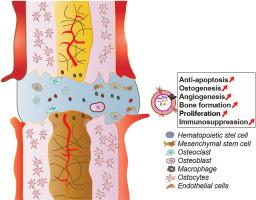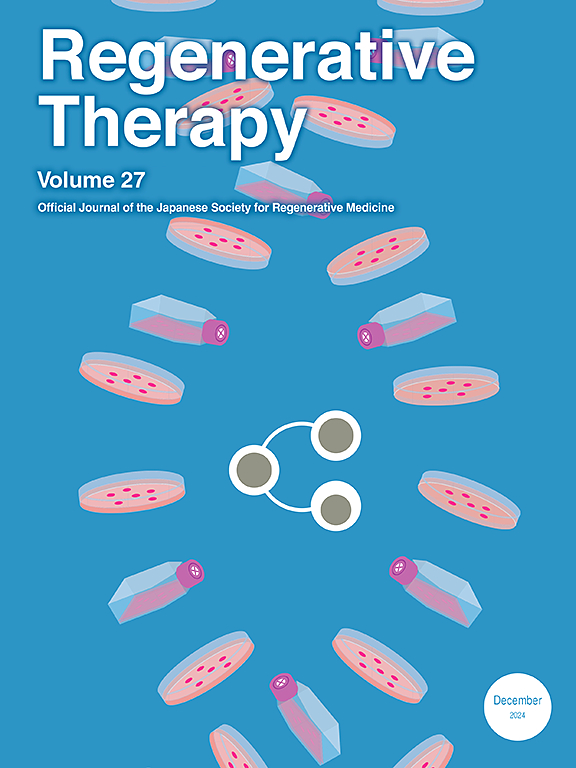Exosomes promise better bone regeneration
IF 3.5
3区 环境科学与生态学
Q3 CELL & TISSUE ENGINEERING
引用次数: 0
Abstract
Fractures primarily result from high-energy trauma, leading to structural discontinuity of bone tissue. Contemporary therapeutic approaches continue to face persistent challenges including nonunion, infection, and inflammatory complications that pose significant clinical management difficulties. Emerging evidence demonstrates that extracellular vesicles (EVs), particularly exosomes, serve as critical mediators in diverse pathophysiological processes. Accumulating studies reveal that exosomal cargos enhance osteogenesis and angiogenesis through dynamic regulation of cellular components and molecular networks within the bone remodeling microenvironment, thereby potentiating fracture healing cascades. This comprehensive review systematically examines the mechanistic contributions of exosomes in coordinating osteoblastic differentiation, osteoclastic activity modulation, and neovascularization processes. In addition, we describe the role of exosomes from different cellular sources (e.g., mesenchymal stem cells, endothelial progenitor cells, and osteoblasts) in fracture repair. Finally, this paper elaborates on the potential challenges and future directions for the development of novel exosome-based therapeutic strategies for clinical fracture repair.

外泌体预示着更好的骨再生
骨折主要由高能创伤引起,导致骨组织结构不连续性。当代治疗方法继续面临持续的挑战,包括骨不连、感染和炎症并发症,这些都给临床管理带来了重大困难。新出现的证据表明,细胞外囊泡(EVs),特别是外泌体,在多种病理生理过程中起着重要的介质作用。越来越多的研究表明,外泌体货物通过动态调节骨重塑微环境中的细胞成分和分子网络来促进骨生成和血管生成,从而增强骨折愈合级联反应。这篇全面的综述系统地研究了外泌体在协调成骨细胞分化、破骨细胞活性调节和新生血管过程中的机制贡献。此外,我们还描述了来自不同细胞来源(如间充质干细胞、内皮祖细胞和成骨细胞)的外泌体在骨折修复中的作用。最后,本文阐述了基于外泌体的新型治疗策略在临床骨折修复中的潜在挑战和未来发展方向。
本文章由计算机程序翻译,如有差异,请以英文原文为准。
求助全文
约1分钟内获得全文
求助全文
来源期刊

Regenerative Therapy
Engineering-Biomedical Engineering
CiteScore
6.00
自引率
2.30%
发文量
106
审稿时长
49 days
期刊介绍:
Regenerative Therapy is the official peer-reviewed online journal of the Japanese Society for Regenerative Medicine.
Regenerative Therapy is a multidisciplinary journal that publishes original articles and reviews of basic research, clinical translation, industrial development, and regulatory issues focusing on stem cell biology, tissue engineering, and regenerative medicine.
 求助内容:
求助内容: 应助结果提醒方式:
应助结果提醒方式:


